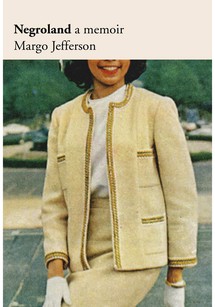In her powerful memoir and social history, Negroland, Margo Jefferson identifies and deftly explores the tensions that come with being a part of America’s black elite. Jefferson recalls her childhood in Chicago as a member of the “Third Race,” the upper-class black folk who are inhabitants of “Negroland”: “a small region of Negro America where the residents were sheltered by a certain amount of privilege and plenty.” They were a different kind of black, never quite fitting anywhere but among themselves. “Inside the race we were the self-designated aristocrats, educated, affluent, accomplished; to Caucasians we were oddities, underdogs and interlopers.”
We meet Negroland antebellum founders, many of whom rose from slavery to become professionals and leaders. Jefferson writes of the civic organizations and leaders. Jefferson writes of the civic organizations that sealed membership in this world, among them the Divine Nine Greek organizations, the Boulé, and Jack and Jill. Using short riffs alternating with longer meditations, she reveals all that it takes to be a citizen of this rarefied group, including the emotional costs of seeking “Achievement. Invulnerability. Comportment.”
Negroland is at its searing best when Jefferson turns to her own life and the pressure of being not only excellent and black, but the right kind of black, preferably with skin that is café au lait and a nose like Lena Horne’s that doesn’t flare too much. Equally revelatory are her descriptions of moments when the protective bubble of Negroland is punctured—for instance, when her family travels to Atlantic City and a white hotel clerk, seeing they are black, demotes them to a sub-standard room.
Jefferson also documents her struggle with depression, made more difficult because giving in to it was “a privilege Good Negro Girls had been denied by our history of duty, obligation and discipline. Because our people had endured horrors and prevailed, even triumphed, their descendants should be too strong and too proud for such behavior.”
What emerges is a unique remembrance of a black girlhood shielded by advantage yet expose to bigotry. Negroland exists to this day, but in a culture where it’s necessary to insist that Black Lives Matter, its borders are far from secure.


